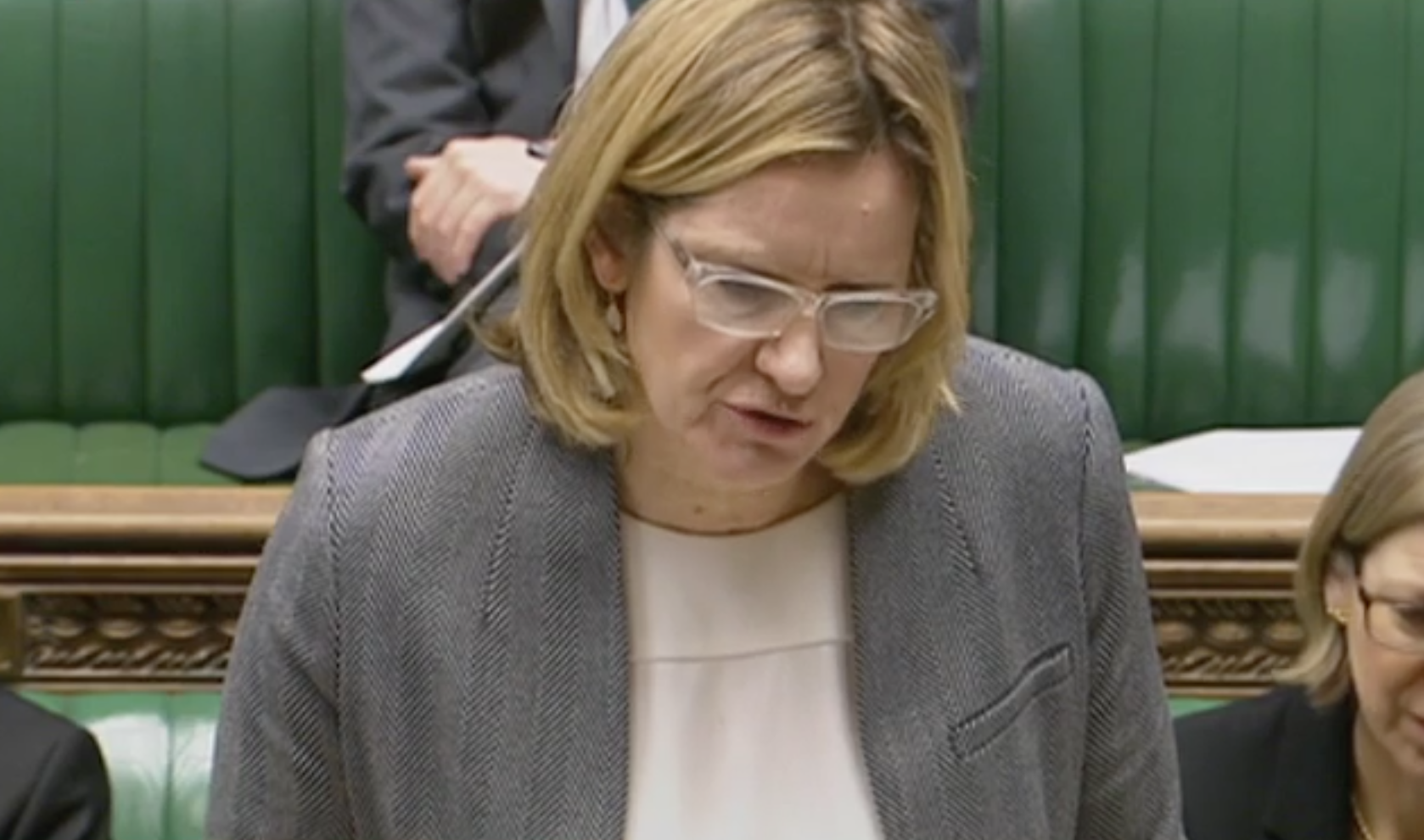The Independent's journalism is supported by our readers. When you purchase through links on our site, we may earn commission.
Don't let Amber Rudd pass the blame over letting lone child refugees into the UK
Opinion seems to exist on a continuum which says refugees in Jordan or Lebanon need our help, but once they get close enough to our borders they suddenly become a potential threat

Compassion, sermonised Amber Rudd at last year’s Conservative party conference, “does not have borders”. It would seem, however, it does have a cap.
Today’s urgent questions on the Government’s decision to close the provision offered by the Dubs amendment to settle unaccompanied child refugees failed to provide any reasonable case, practical or ethical, for back tracking on last summer’s commitment to settle thousands.
Amber Rudd is wrong on the Dubs amendment for two important reasons. The first is that her interpretation of Dubs as a “pull factor” or “incentive” to travel across Europe isn’t born out in the statistics. We have only settled 200 children so far, less than 10 per cent of the originally stated goal of 3,000. The newly imposed cap of 350, just over half of the 544 unaccompanied children residing in Calais, will not dissuade the people traffickers or those desperate enough to pay for their “services”.
Refugees and migrants were streaming across Europe long before David Cameron adopted the amendment and will continue on after it has been dropped. Invoking the image of some sort of modern day children’s crusade rolling across French hills and through shady German woodland all because we’ve committed to helping child refugees is a bit of a stretch. With MPs reporting that 50 unaccompanied child refugees a day are going back to the camps in northern France, we’re passed the point of stopping them getting on the boats in the first place.
Secondly, the insinuation that councils weren’t “stepping up” is an invitation to see an act of self-defence as sadism. Local authorities simply don’t have enough money to meet their current obligations, let alone pump up demand for their services. As the LGA’s David Simmonds said on BBC Radio 5 Live, “If the money isn’t available to pay foster carers, then councils won’t be able to get them to take on refugee children.”
Underneath all of this is a contradiction which we have yet to figure out. Opinion seems to exist on a continuum which says refugees in Jordan or Lebanon need our help, but once they get close enough to our borders suddenly they become a potential threat. Can we really, as Daniel Trilling wrote in the Times Literary Supplement last June, expect a border policy which puts our obligations to displaced people into conflict with our desire for security to work? Politically the answer appears to be no.
The Home Secretary suggested we need to “spread responsibility around” for child refugees. She rightly praised Kent for bearing the brunt, yet I fail to see how she can assume the moral high ground over councils who choose not to enter a voluntary scheme when she voluntarily caps the numbers we accept.
I mentioned the children’s crusades of 1212 earlier. Tens of thousands of children and peasants followed Stephan of Cloyes and Nicholas of Cologne towards the Middle East. None were recorded to have reached the Holy land. They barely left their own countries, let alone the continent. This is surely the point. Most will not reach our shores. More than 80 per cent are hosted by developing countries close to their own.
Last year we established an obligation to those children who did make it that we would protect them. “Are such things done on Albion’s shore” wrote William Blake in his Songs of Innocence and of Experience on Britain’s predilection for excessive commercial and penal treatment of children. We no longer indulge such brutality ourselves; however in reneging on our Dubs commitment we are indirectly abetting a cruelty not out of place in the 18th or 19th century. Not on Albion’s shores anymore I grant you, but just off them.

Join our commenting forum
Join thought-provoking conversations, follow other Independent readers and see their replies
Comments